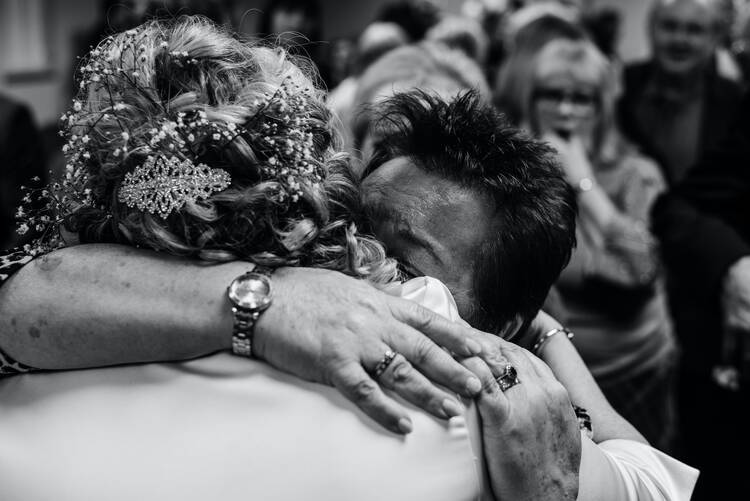A Reflection for Thursday of the Twenty-sixth Week in Ordinary Time
“Today is holy to the LORD your God. Do not be sad, and do not weep.”
Why do people cry in joyful moments? We associate tears with grief, and yet, they are as much a part of weddings as they are of funerals. I am not much of a crier, but sometimes when I see or hear something exquisitely beautiful, I am startled to find that my face is wet. It’s a strange thing. Even in moments of great joy, the tears still seem to express a kind of sadness; it is as though that piercing moment of beauty or love has cast a blinding light on everything else in this fallen world, or perhaps within my fallen self
In the passage from Nehemiah, the Israelites stand attentively when Ezra reads aloud the law of Moses. The Bible specifies multiple times that the assembly includes men, women, and “those children old enough to understand.” The point is clear: God’s people are gathered. As they hear the truth, articulated in plain language, they are unable to keep from weeping.
It’s a poignant moment. Why couldn’t this assembly have happened years earlier? Perhaps Judah would never have been conquered. What if they had wept for their sins when the prophets urged them to? Perhaps they would not have been exiled from their homeland. Solomon’s temple stands in ruins; the Northern Kingdom has fallen. Much has been lost. But now, carrying these terrible memories of destruction and death, the Israelites do finally listen. And they weep. God’s law is beautiful and just, but it also throws a painful light on human sins and failures, as joy and anguish combine in an excruciating ecstasy.
Sometimes, it is necessary for us to be told: Do not weep.
However, the story does not end in tears. Rather, the people are told to feast. This instruction has to be repeated multiple times because the assembly is still weeping and prostrating themselves on the ground. The Levites move among the people, ordering them to get up, make fancy food and celebrate. They must find their strength in rejoicing because despite the haunting memories, they have returned to their homeland, their Lord and the truth. It’s a time for partying because God’s grace is more powerful than human sin.
Reflecting on this powerful moment of reconciliation, we may feel a prickle of envy. We live in a very confused world, filled with lost and despairing souls. Our own Church often seems corrupt and bitterly divided. We may yearn to experience a similar cleansing, which we would ideally experience together, as the Israelites did, gathered as the people of God. Will such a thing ever happen again? How long, O Lord?
We can pray that God will grant our church this same gift. In fact, we should! It is important to notice, however, that the “rich foods and sweet drinks” of the Israelites’ celebratory feast are appropriate only because “they understood the words that had been expounded to them.” After many long years of confusion and suffering, God did grant joy and healing, but first, the people had to summon the courage to listen attentively to his word. They had to recognize what it meant, for the world and themselves.
We can do this too. God wants us to return to him. But sometimes, it is necessary for us to be told: Do not weep.








